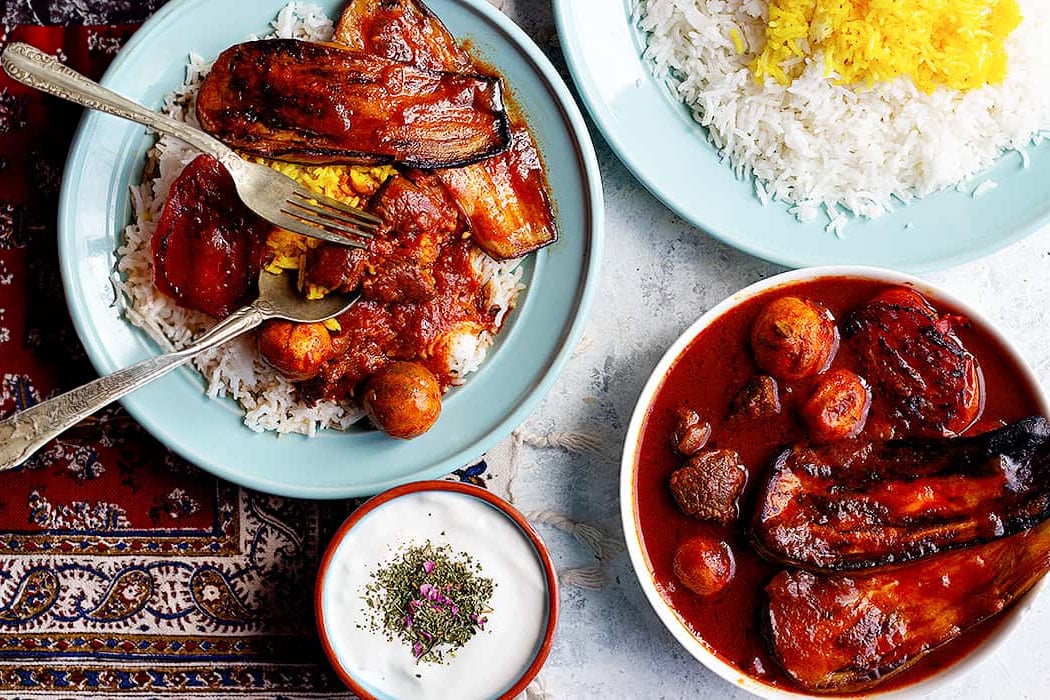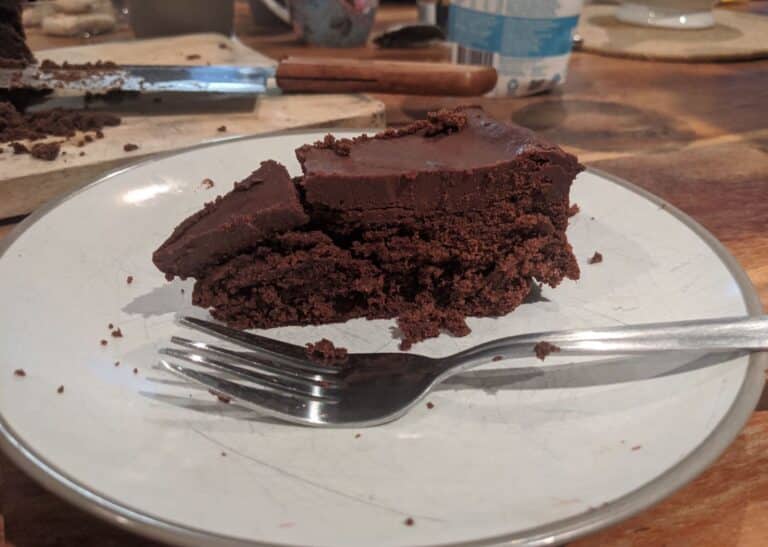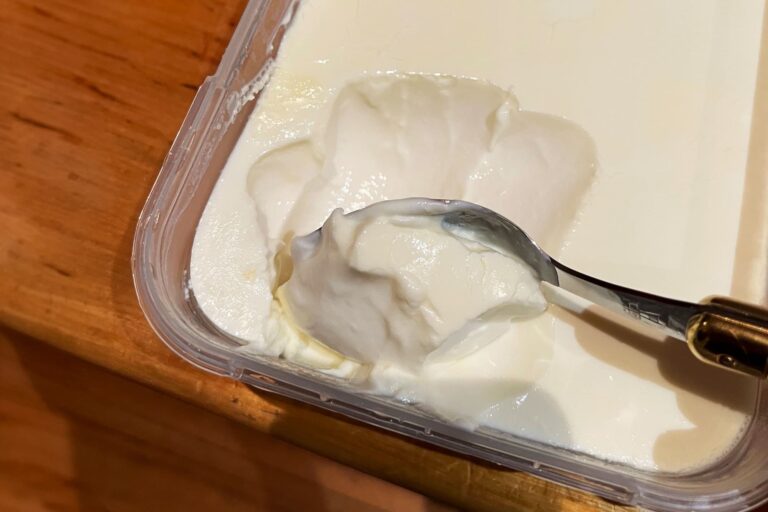Korean Persian Eggplant Stew (“Khoresht-e Bademjan”)
This is my recipe for a Persian “khoresht” (a sauce, stew or casserole) that I make with a Korean twist. I did this after learning a bit about Korean cooking. I wanted to spice things up. And it works!
Altogether, this takes about 1 hour to make, but you have to cook it for four hours to get the lamb nice and soft.
My brother-in-law Ira asked for this so I had to write it down, despite not knowing all the quantities. I’ll test it out a few more times and may alter the exact amounts in the future!
Serve this khoresht with:
- Persian rice and tahdig (steamed basmati rice with a crunchy base). Failing this, steamed basmati rice is the minimum.
- Persian yoghurt / cucumber mix (“mast-o khiar”) or plain Greek yoghurt. (This is my recipe for home-made Greek-style yoghurt using only milk powder!)
Ingredients
- 1 kg / 2 lb boneless lamb shoulder
- 2 large yellow onions
- Three-four large eggplants, or ten-twelve thin Chinese-style eggplants
- Half a garlic bulb (6-8 segments)
- Knob of fresh ginger
- 800g of crushed tomatoes (2 large 14 oz tins or one 28 oz tin)
- 1/2 cup or 4 tablespoons tomato paste
- 1/4 cup or 2 tablespoons of gochujang
- 1/2 cup mirim (Korean rice wine)
- 1 Korean pear
- 2 tablespoons turmeric
- 2 teaspoons cinnamon
- 1/2 teaspoon cardamon
- Vegetable oil
- Olive oil
- Salt, pepper
Preparation / Mise-en-Place
This is the phase of preparing the ingredients for final cooking.
- Preheat an oven (it can be a small toaster oven) to 200 degrees C / 400 F.
- Coat eggplants generously with olive oil and salt. Line a roasting tray with baking paper and leave the eggplants there.
- When oven is ready (you can do other prep below as you wait), roast eggplants whole for ~30-45 minutes. Turn them a few times so that they roasts evenly. They should be soft at the end. When they’re done, slice them into 2-3 slices, depending on thickness.
- Dice the lamb into pieces around 1 inch or 2.5 cm size. (They will shrink when cooking.)
- Generously rub about 2 teaspoons of salt onto the lamb pieces. Allow to rest.
- Cut onions in half, and cut into slices.
- Crush the garlic, or mince it finely with a knife.
- Peel, core, and cube the Korean pear.
- Grate the ginger.
- Combine wet ingredients for sauce: crushed tomatoes, tomato paste, gochujang, mirim, and also add the grated ginger to this.
Note — Most recipes suggest dicing the eggplant and roasting it with oil and salt until it’s golden, or frying it. But this makes for a very oil-heavy recipe and so I prefer not to do it that way. Still, it’s delicious that way!
Method
Here’s how you put it together.
- In a large pot, add a few tablespoons of oil and heat to medium high heat.
- Sear the lamb on all sides. Set aside.
- Give the pot a wipe. Add two tablespoons olive oil, and fry onions for a few minutes until they are soft and translucent.
- Add garlic and dry spices and fry for a minute until they’re fragrant.
- Add back in the lamb. Stir and coat the lamb with spices, and allow it to become warm and fragrant.
- Add in the wet ingredients + ginger.
- Add in about 3 cups of water, enough to reach the top of the lamb. Once it starts boiling, reduce the heat to low and cover.
- Stew for around 2 hours. Check salt levels and add more salt / pepper as necessary.
- Add in the Korean pear.
- Layer the sliced eggplant on top.
- Cover and continue to stew until the lamb is soft — around 1-2 hours more. If the water level is too high, leave the lid off for some of it.
Serving
Serve this with Persian-style rice (“polo”) and Greek yoghurt or mast-o-khiar.







